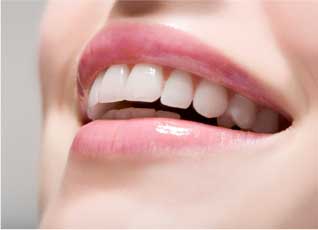Chewing gum… is it good or bad for your teeth?
It all depends on what type. Sugar-free chewing gum made with xylitol helps fight against cavities, bad breath, and more. On the other hand, sugar-loaded chewing gum only contributes towards tooth decay.
Here Are 11 Things You Should Know About Chewing Gum:
1. Xylitol Is A Key Ingredient To Look Out For
Sugar-free gum made with xylitol, is the best type of gum for oral health.
When we eat sugary foods or drink, the sugar residue feeds the bad bacteria in your mouth, increasing the buildup of plaque on the teeth. Over time, this can result in tooth decay. That’s why sugar-free gum with xylitol is a better option.
Xylitol is a natural, sugar-free sweetener. While it may look and taste like sugar, xylitol has fewer calories and doesn't raise blood sugar levels.
The bad bacteria which causes tooth decay doesn’t feed off xylitol, making it a great ingredient in chewing gum to substitute sugar.
One study found that chewing sugar-free gum made with xylitol reduced the amount of bad bacteria in the mouth by up to 75 percent, while the good bacteria levels remained even.
2. The Right Chewing Gum Can Help Prevent Tooth Decay
Chewing gum increases your saliva production, a key component to good oral health. A healthy flow of saliva helps wash away harmful sugars and food particles. This prevents bad bacteria from growing inside the mouth and therefore, protects the teeth from decay.
Please note, chewing gum cannot replace brushing and flossing. It acts as an additional oral hygiene process to incorporate after meals.

3. But The Wrong Type Of Chewing Gum Can Increase Plaque Buildup
If your teeth are constantly coming in contact with gum coated in sugar, it will cause havoc on your oral health.
Bad bacteria feeds off sugar, causing a buildup of plaque. Over time this increases your chance of tooth decay.
Eating too much sugar is also bad news for your overall health, as it’s associated with obesity, insulin resistance, diabetes and more.
4. The Right Chewing Gum Can Help Stop Bad Breath
Another bonus to an increase in saliva flow and a decrease in bacteria build up is a better smelling mouth.
Chewing a spearmint or peppermint flavoured gum not only makes your breath taste and smell fresh, it also reduces bad breath in the long run.
5. Chewing Gum Can Help You Quit Smoking
If you’re trying to quit smoking, opting for a piece of gum in place of a cigarette may do the trick.
It comes down to the physical act of having something else in your mouth, and breaking free from the habit.
Chewing on gum for a few minutes not only diverts your attention and reduces your cravings for a cigarette, but also other addictive stimulants such as caffeine and sugar.

6. You Could Even Lose Weight
Got a case of the afternoon munchies? Instead of reaching for a sugary treat, people who chew gum are reducing their calorie intake yet still getting that sweet fix.
And it doesn’t stop there. The fresh mint residue in your mouth after you’ve finished the gum will further stop you from wanting to snack.
7. Chewing Gum Can Reduce Stress
Do you get fidgety and restless when you’re stressed? Chewing gum may help reduce those feelings of stress and anxiety.
Various studies have linked the act of chewing, formally known as mastication, to reduced levels of the stress hormone, cortisol.
8. Your Brain May Benefit From Chewing Gum Too
Numerous studies have discovered that chewing gum whilst performing stimulating activities can improve various aspects of brain function, such as memory, decision-making, alertness and understanding.
One study found that people who chewed gum whilst undergoing an exam performed 24% better in short-term memory tests and 36% better in long-term memory tests.
It is believed chewing gum increases blood flow to the brain, resulting in improved brain functions.
9. It Can Cause Jaw Strain
Overtime, excessive chewing can lead to jaw pain. If you’re always reaching for gum, the constant motion can aggravate the cartilage and joints in the mouth, leading to a jaw problem called temporomandibular disorder (TMD).

10. It May Cause Bloating Or Gas
The motion of chewing gum, yet not actually digesting any food, may be causing you to swallow excess air. This can contribute to Irritable Bowel Syndrome (IBS), which is associated with abdominal pain via bloating, cramping and/or gas.
11. Some Types Of Chewing Gum Can Give You Diarrhoea
If you’re chewing gums with artificial sweeteners such as sorbitol and mannitol, these ingredients can have a laxative effect, causing diarrhoea.
The Verdict: Is Chewing Gum Good Or Bad For Oral Health?
If you choose sugar-free chewing gum made with xylitol, this is good for oral health.
It increases saliva production to reduce your chance of decay and kill bad breath, as well as other health-related benefits such as a memory boost and reduced stress.

Take Control Of Your Oral Health
If you have questions about the effects of chewing gum on your dental health or want personalised advice, our team at Mulgrave Dental Group is here to help. Schedule a dental consultation with us today and get expert guidance on maintaining a healthy, happy smile.
Smile Makeover Client
Your Healthier Smile Awaits
Whether you're looking to improve your dental health or enhance your smile, we're here to help. Book an appointment with Mulgrave Dental Group today!
Book Now


